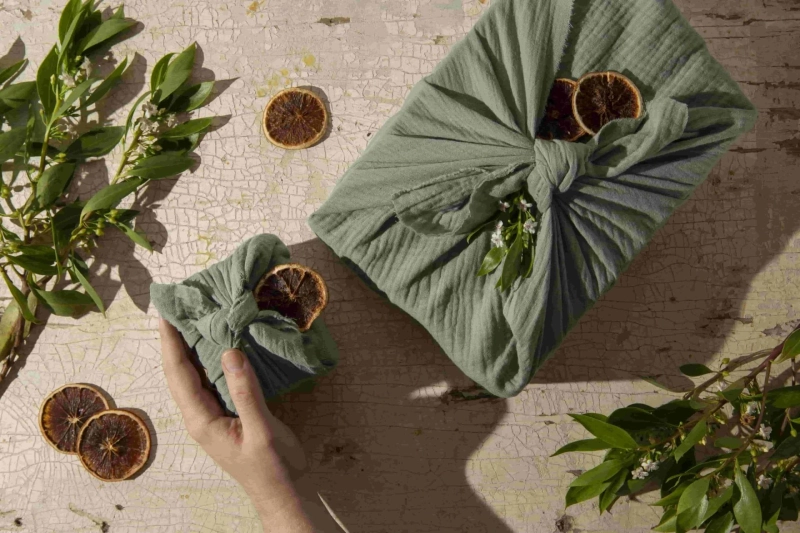Are you tired of the fashion industry\'s negative impact on the environment? Are you looking to incorporate more sustainable and eco-friendly materials into your wardrobe without compromising style? Fortunately, there is a growing movement towards sustainability in fashion, and ORA Organics is at the forefront. From luxurious organic cotton to innovative recycled fibers, discover the power of sustainable fabrics and how ORA Organics is leading the charge in creating a more environmentally friendly future for fashion
Sustainable Fabrics: A Game-Changer
Sustainable fabrics are revolutionizing the fashion industry by providing eco-friendly alternatives to traditional textiles, minimizing environmental and human health impacts throughout their lifecycle, from production to disposal, and offering several key benefits like:
Minimal Use of Resources
Organic cotton, hemp, and other organic fibers are sustainable crops that reduce water usage and soil contamination by using natural methods and avoiding synthetic pesticides and fertilizers. They are also rain-fed, promoting water resource conservation and soil health improvement.
Low carbon emissions
Sustainable fabric production methods, including renewable energy sources and natural fiber cultivation, significantly reduce carbon emissions compared to fossil fuels. Fabrics like hemp, wool, and organic cotton are biodegradable, meaning they can break down naturally without leaving harmful residues. By recycling organic fabrics, they also divert waste from landfills. Sustainable fabrics are more durable, resulting in longer-lasting garments and reduced clothing replacement frequency, lowering overall carbon emissions.
Minimal Toxin Exposure
Non-toxic materials such as organic cotton, natural dyes, and naturally processed fibers form the foundation of sustainable fabrics. Growers grow organic cotton without synthetic pesticides and fertilizers, thereby reducing skin irritation and health issues. Natural dyes are low-impact and do not contain harmful chemicals. Sustainable fabrics also use naturally processed fibers like wool, silk, and bamboo, treated with fewer chemicals.
ORA Organics\' Fabric Options
ORA Organics offers a variety of sustainable fabric options that contribute to reducing environmental impact and enhancing human health. Here are some of their notable fabric choices:
Rose Fabric: The by-products of rose bushes serve as a source for the production of rose fiber. The production process typically involves eco-friendly methods that minimize environmental impact. Rose fabric has natural antibacterial properties that help prevent bacterial growth. This can reduce odors, reduce the need for frequent washing, and save water and energy.
Orange Fabric: Citrus by-products, typically discarded as waste, are the source of orange fiber, a sustainable and circular economy product. This reduces the environmental impact of citrus waste and promotes resource efficiency by transforming waste into valuable raw materials.
Hemp Fabric: Hemp fabric, derived from Cannabis sativa plant fibers, is a sustainable and durable natural fiber suitable for clothing, upholstery, and industrial use. It is highly breathable, absorbent, and adaptable to climate, providing insulation in cooler weather and remaining breathable in warmer temperatures. It also offers natural resistance to UV rays, making it ideal for outdoor wear.
Recycled Cotton
Recycled cotton, derived from post-industrial and post-consumer waste, is a sustainable and practical textile option. When processed properly, it retains the strength and durability of virgin cotton, blends with other fibers, and maintains its original softness, breathable properties, hypoallergenic properties, and high-quality appearance.
Handloom Cotton
Handloom cotton is a sustainable, eco-friendly fabric woven by skilled artisans using natural dyes. Its soft texture and flexible yarns make it comfortable to wear, especially in warm climates. Handloom cotton is hypoallergenic and free from harsh chemicals found in synthetic fabrics, making it suitable for those with sensitive skin or allergies.
Apart from these fabrics, ORA Organics also offers clothing in banana, aloe Vera, peace silk, soya, and flax fabrics.
Style with ORA Organics
Sustainable fashion is characterized by innovative designs, variety, and artistic value, incorporating sustainability into garments. People celebrate brands like ORA Organics for their stylish, sustainable collections. Our hand-woven fabrics are known for their durability and unique textures. We incorporate traditional craftsmanship and cultural elements into our clothing, adding unique artistic value. Our commitment to ethical practices attracts consumers who seek transparency and accountability.
In brief, ORA Organics is a leading brand in the sustainable fashion industry, offering a wide range of eco-friendly fabric options. Their fabrics, such as organic cotton, hemp, and recycled cotton, minimize the use of resources, reduce carbon emissions, and minimize toxin exposure. ORA Organics also incorporates unique fabrics like rose, orange, banana, and aloe Vera into their stylish and ethically made clothing.
"Sustainable fashion is not a trend but the future." - Livia Firth
FAQs
Q: Is it more expensive to use sustainable fabrics for clothing?
A: While sustainable fabrics may have a higher upfront cost, they often have a longer lifespan and can be more cost-effective in the long run. Additionally, investing in sustainable fabrics supports ethical and environmentally responsible practices.
Q: Can you protect the environment and still have stylish, high-quality clothing?
A: Yes. ORA Organics provides sustainable clothing that is both fashionable and long-lasting, while also encouraging environmental conservation. Individuals may preserve their style while lowering their environmental impact by selecting sustainable fabrics.
Q: Are sustainable fabrics comparable in quality to traditional fabrics?
A: Yes, sustainable fabrics can be as high-quality as regular ones. Many sustainable materials are recognized for their softness, durability, and breathability.



